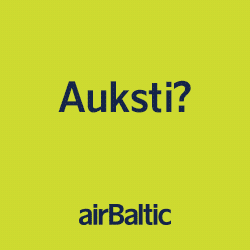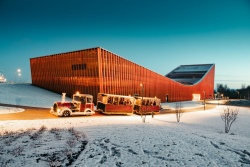Low unit cost and affordable tickets for our passengers have been the focus of airBaltic for the past ten years. By offering lower fares to leisure travellers and business people, also in regional centres, airBaltic continues to demonstrate that passenger growth is possible in the Baltic markets and Scandinavia despite the recent recession; this strategy of affordable tickets to regional customers is today copied by new players in the North Europe.
Today’s reality in the aviation industry of high fuel prices and relentless cost pressures means that we cannot rest on our past achievements, and need to make further improvements to our efficiency. We will do that by modernizing our fleet and retiring ten Fokker50 aircraft earlier than originally planned.
In the past twelve years, the Fokker 50 has served airBaltic very well. It has been our main workhorse for regional flights that today bring transit passengers to North Hub Riga for their onward journeys to destinations like Paris, London, Tel Aviv, or Kiev. It is an excellent aircraft. However, the increasing fuel prices and maintenance cost for the out-of-production aircraft require action. As part of airBaltic’s fleet modernisation plan, we introduced the state-of-the-art Bombardier Q400 Next Gen aircraft last year. We clearly see the impact of the introduction of the modern aircraft on the efficiency of the airline and operating costs helping us to maintain affordable ticket prices in the world of rising fuel costs.
With the retirement of the Fokker50s, airBaltic will operate larger aircraft more intensively, and at a lower per-seat cost. The number of seats available on flights from and to Europe, Scandinavia, Middle East, Russia/CIS via North Hub Riga will also be the same as in the previous winter. It means that we will also adjust our internal functions, as part of this cost-cutting exercise to save 30 million LVL (over 45 million EUR), for the benefit of our customer who wants to fly at affordable prices. Regrettably this will also require us to reduce staff numbers by over 200, which we are not celebrating like the shareholders of banks or other publicly traded companies.
These are tough and decisive steps, but we are convinced that our passengers will greatly benefit from more convenient, efficient and newer aircraft, improved service and punctuality at an affordable price.
Bertolt Flick, President and CEO
To publish this article please contact BalticTravelnews.eu editorial board








.jpg)